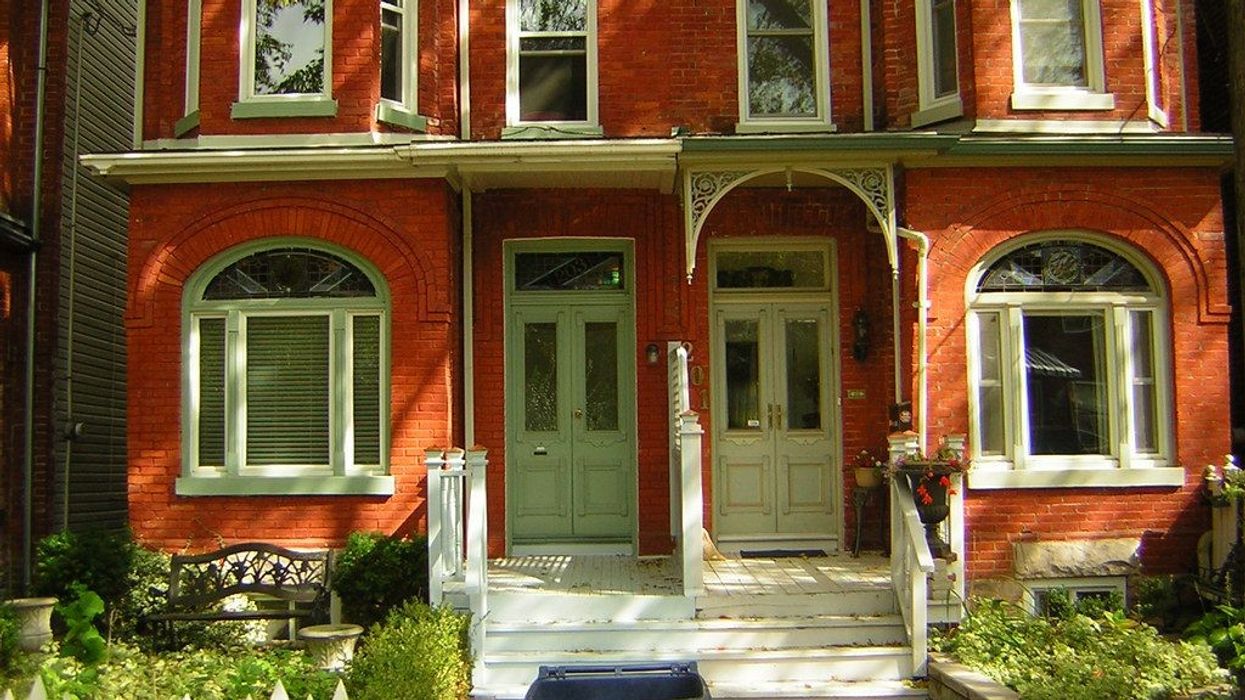Our weekly round-up of real estate news in Toronto, across Canada and the world for the week ending December 2, 2016.
TORONTO
1 In 3 homes listed for resale in Toronto haven’t been occupied (Better Dwelling)
Yup, Toronto has a speculation problem too. Last week we used natural language processing to comb through listings in Vancouver, and determined that 1 in 10 listings for resale were never occupied. This was done by analyzing the listings for language that implied, or outright stated, that it was “never occupied.” Doing the same thing in Toronto, we found that 1 in 3 listings being resold have never been occupied. This is a strong indicator that prices are being driven by speculation, not fundamentals.
Toronto housing market takes a breath as buyers think globally (Globe and Mail)
The urgency seems to be seeping out of Toronto’s real estate market as the year comes to a close.
“I think people have frankly gone into a ‘wait and see’ mode,” says real estate agent Janet Lindsay of Chestnut Park Real Estate Ltd.
Listings are dwindling, as they typically do at the end of November, but agents feel the pause came a little earlier this year. “It feels to most people that it’s been going on for a few weeks,” she says.
CANADA
Foreign ownership of Canadian condos down from 2015: CMHC (CBC)
Foreign ownership of existing Canadian condominium units in Canada's three biggest cities has declined in 2016 compared with the previous two years, according to a CMHC report that aims to shed light about foreign buyers on Canadian real estate.
Canadian condo ownership by foreign residents is highest in Toronto, where 2.3 per cent of units are owned by foreign residents, according to the Canada Mortgage and Housing Corporation. Vancouver and Montreal have foreign condo ownership rates of 2.2 per cent and 1.1 per cent, respectively.
Don't blame foreigners for hot real estate (Bloomberg)
In an exclusive TV interview with Bloomberg TV Canada's Amanda Lang, CMHC President and CEO Evan Siddall says there is evidence that investor activity in Canadian housing is predominately domestic, not foreign, and he calls on Canadian municipalities to do more to address the lagging supply in cities, particularly in Toronto and Vancouver, because the federal government's recent measures to cool the market were "necessary, but not sufficient."
Vancouver, Toronto rental markets still hot despite Canada’s vacancy rate on the rise (Financial Post)
Canada’s rental vacancy rate edged up in 2016 as the supply of apartments increased, but rental housing was harder to find in Vancouver and Toronto, where a long housing boom has driven real estate investment and a condo building boom.
Canada’s vacancy rate increased to 3.4 per cent in October from 3.3 per cent a year earlier, as the number of new units hitting the market outpaced the rise in occupancy, the Canada Mortgage and Housing Corp said on Monday.
USA
Silicon Valley upstart Opendoor is changing the way Americans buy and sell their homes (Forbes)
In the summer of 2015, Ranjit Bosu, a 46-year-old systems administrator at General Motors, got the opportunity to transfer from Phoenix to Austin, Texas. He and his wife, Natasha, 41, put their home on the market, asking $335,000. Three months passed, as potential buyers came and went without making an offer. The Bosus tried cutting the price to $320,000.
“Our Realtor kept telling us, ‘It’ll sell, it’ll sell,’ but then it was already September, and it was too late,” Natasha says. The failure to sell their home meant they had to pass on the transfer.
A year later they decided to try again. This time they contacted Opendoor, a San Francisco-based startup that buys homes for cash based on a black-box pricing algorithm.
Will 2017 be the year millennials buy houses? (Reuters)
Millennials have been the largest demographic group since 2015, but they have not been pulling their weight in buying homes. And that's put a big crimp on the housing recovery.
Both Zillow.com and Realtor.com, two online real estate powerhouses, are betting that next year those between ages 18 and 36 will start turning that around.
Realtor.com predicts that home prices will increase 3.9 percent over the next year, with sales of nearly 5.5 million homes. The site expects mortgage rates to reach 4.5 percent (from around 4 percent now).
INTERNATIONAL
Trump Election Victory Creating Property Market Uncertainty in Middle East (World Property Journal)
According to international property consultants Cluttons; following a sustained period of economic instability, fuelled by falling oil prices and a general weakening of the global economy, the recent election of Donald Trump as the 45th president of the United States of America is set to cause further uncertainty for the Middle East's real estate market, at least in the short term.
Asia Pacific investors and real estate markets: Expecting the unexpected (Thailand Business News)
After Brexit, we wrote about potential winners and losers in the Asia Pacific real estate markets when there is a shift in the political environment.
Much will be written about the election of Donald Trump to the Presidency of the United States, and the extent to which polling failed to see the appeal of the Trump campaign, much the same way Brexit was unexpected.
So what does this result mean for Asia Pacific investors and real estate markets?
Barbados: 50 years of independence and still a luxury property haven for ex-pats (The Telegraph)
As you cruise along Barbados’s west coast these days, past the palatial houses, five-star restaurants and exquisite beaches, it’s hard to believe that, 50 years ago, this was a flea-ridden strip that few were keen to call home.
“It was hot, swampy and there were a lot of mosquitoes and knats. The west coast wasn’t really thought about at the time,” recalls Nick Parravicino, a Bajan resident who founded his villa rental company, Realtors, in 1952, and is still going strong, advising expats on buying, building, renting and running their luxury properties in Barbados.





















